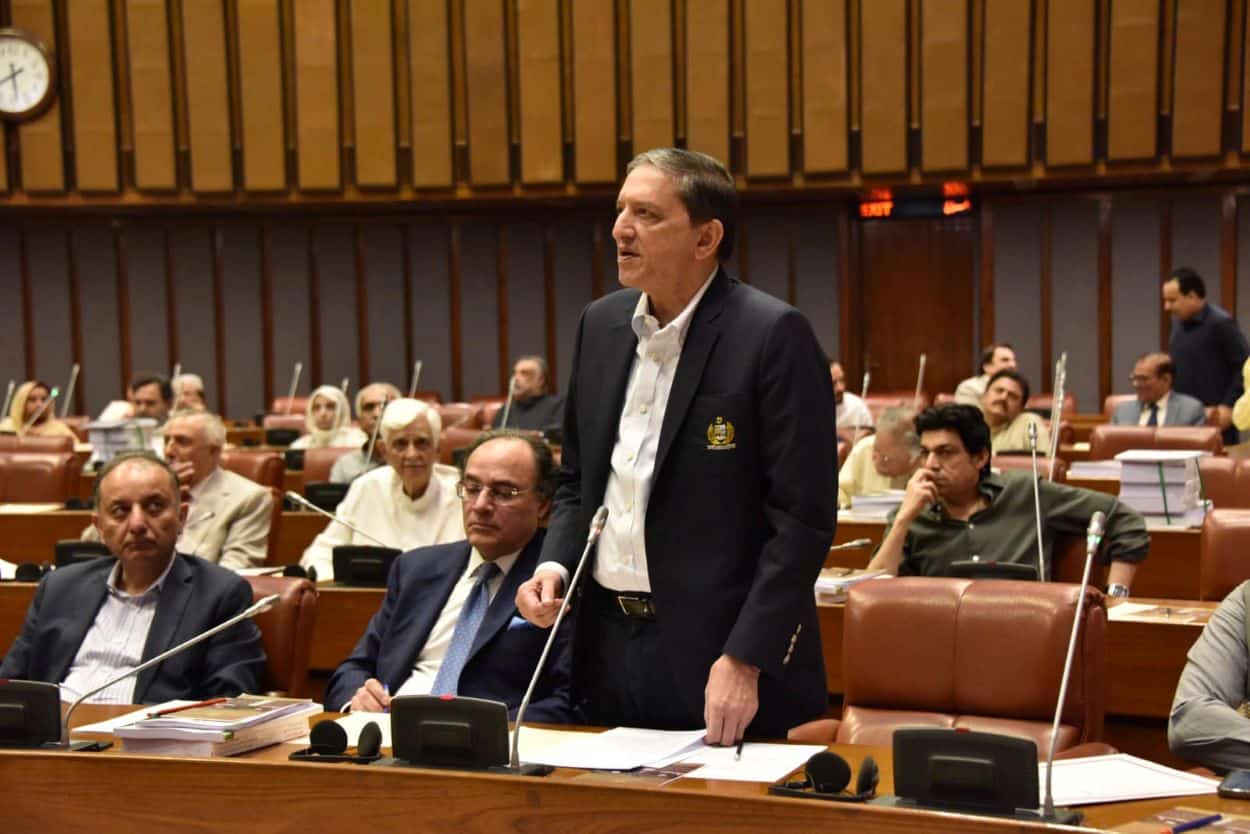During Monday’s session, the Senate submitted 128 recommendations for the 2024-25 Public Sector Development Programme (PSDP) to the National Assembly, intending to shape the Finance Bill 2024.
These recommendations will now proceed to the National Assembly, which will determine their inclusion in the Finance Bill.
Out of all proposals, 69 addressed general budget issues for 2024-25. Others targeted specific acts like the Customs Act of 1969 and the Sales Tax Act of 1990, among others.
Senate’s Finance Committee Chair, Saleem Mandviwala, presented these recommendations, which the Senate accepted.
Mandviwala expressed concerns about the shortened review period for the budget document, which was limited to six days instead of 14.
He shared insights from discussions with over 32 associations and civil society members, emphasizing their feedback on the finance committee’s recommendations.
The chairman highlighted that nearly half the Rs18.9 trillion budget is earmarked for interest and debt repayments, with significant funds allocated to cover the budget deficit.
He criticized the failure to integrate 2.9 million non-filers into the tax system, which has placed a greater burden on the economically disadvantaged.
The committee unanimously opposed increased taxes on lower-income earners and taxes on essentials like baby milk.
For the first time, public servants with disabilities voiced their budgetary concerns, prompting the committee to suggest special allowances.
Mandviwala advocated for benefits for charity hospitals and proposed taxing fee-charging entities. He also opposed new taxes on educational materials.
He urged political parties to avoid politicizing the economy, suggesting a charter to safeguard economic stability.
The Senate recommended increasing the minimum wage to Rs45,000 and suggested a double basic pay allowance for disabled individuals.
Proposals included removing the 10% GST on newsprint imports and revoking the sales tax on poultry feed.
The Senate also called for a rollback on the recent petroleum levy hike and suggested mandatory credit/debit card transactions for purchases over Rs35,000.
It proposed a substantial reduction in indirect taxes to decrease the cost of essential items for the poor and an increase in direct taxes by widening the tax base.
Additionally, the Senate suggested customs duty benefits for electric vehicles under $50,000 and maintaining zero-rated exemptions for critical sectors.
To cut government spending, the Senate recommended renegotiating IPP agreements and tackling annual tax evasion, which would significantly impact GDP.
It also called for reinstating medical GST exemptions and promoting development in Balochistan with new programs and energy projects.
The Senate proposed maintaining tax exemptions in the FATA/PATA regions and adjusting the sales tax rates for imports to these areas.






